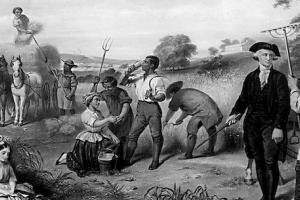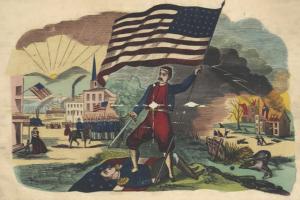Did All Chicagoans Support The Civil War?
WBEZ - Public Radio Chicago
 Historians are so accustomed to viewing slaveholders at the top of a complex pyramid of class, racial, and gender hierarchies in Southern society that we forgot that they were also the nation’s most powerful political leaders, and the world’s most powerful slaveholding class. Only in the past fifteen years or so have historians begun to look more systematically at slaveholders as leading national and international actors, as well as Southern social elites.
Historians are so accustomed to viewing slaveholders at the top of a complex pyramid of class, racial, and gender hierarchies in Southern society that we forgot that they were also the nation’s most powerful political leaders, and the world’s most powerful slaveholding class. Only in the past fifteen years or so have historians begun to look more systematically at slaveholders as leading national and international actors, as well as Southern social elites.
 What value would be added by viewing the war from outside the nation? How does it change our understanding of the war to situate it within a larger international context?
One simple answer is that the war mattered greatly to the world. In newspapers and magazines, in meeting halls, churches, taverns, lecture halls, workers unions, and at posh dinner parties, foreigners followed the war with great interest and they debated what it meant for their future.
What value would be added by viewing the war from outside the nation? How does it change our understanding of the war to situate it within a larger international context?
One simple answer is that the war mattered greatly to the world. In newspapers and magazines, in meeting halls, churches, taverns, lecture halls, workers unions, and at posh dinner parties, foreigners followed the war with great interest and they debated what it meant for their future.
Spread the word